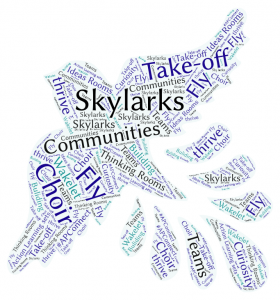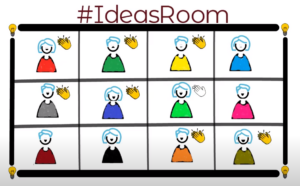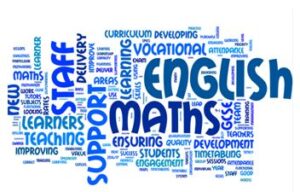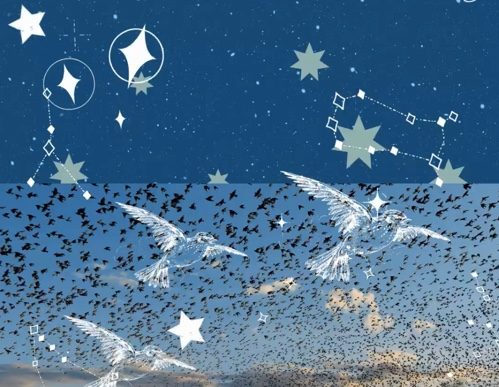#APConnect – the Dawn Chorus by Mary Conway
Dawn Chorus
Have you ever listened quietly in a field or moorland at dawn on a spring day? If not, try it some time. First one bird sings a few notes then another and another until the sky is filled with the most wonderful music. And in that music, if you are very lucky, you may catch the pure, exquisite tone of the skylark as it soars high into the sky and sings to its heart’s content.
that music, if you are very lucky, you may catch the pure, exquisite tone of the skylark as it soars high into the sky and sings to its heart’s content.
Now sit quietly and think about what it means to be an Advanced Practitioner (AP). In the four years since the launch of the Education and Training Foundation’s #APConnect programme, so much has come to define not only the role of the AP but also the nature of advanced practice itself. It’s been a process of collective sense-making informed by research and practice evidence, establishing not only what our values are, but also how we put these values into practice and how they determine the nature of education and the process of learning and growing. And we’ve been spreading the word through our Constellations, Festival Fridays and much more.
Now, this year, we have heard a new voice: that of AP Skylarks whose notes are beginning to ring out across the landscape like birds at dawn. And just as birdsong swells as the day progresses filling the air with sweet new sounds, so AP Skylark teams are growing in confidence and sending out ever clearer notes.
Who are Skylarks?
Skylarks are AP teams working across the education and training sector in a range of organisations funded by the Education and Skills Funding Agency. For their participation in the #APConnect Skylark pathway, Skylarks have this year received a grant for their organisations from the Department for Education through the Education and Training Foundation. Together our Skylarks form the ever-growing Skylark Choir.
What do Skylarks do?
Skylarks are agents and catalysts for deep professional learning in their organisations. We are defining professional learning as peer-led/peer-supported as distinct from expert-led CPD. Skylark teams enable and empower practitioners to:
- grow and develop
- reach out and collaborate
- enquire and learn
- build confidence
- demonstrate leadership
- together form a powerful professional body.
Skylarks:
- hone, articulate and share values
- enact these values through their practices
- model these values and their practical application with others
- learn from others about how best to learn, what to learn, the importance of values and how to enact them
- distil from their value-led practice the treasures and success stories that inspire others
- exhibit theses treasures and stories so they ring out across the sector like the skylark song
What have been the Skylark contractual activities this year?
The Skylark pathway developed as a natural progression from the first three years of the #APConnect programme, during which time two dimensions of AP activity came to characterise what we now recognise as contributing to the discipline of Advanced Practice; collaborative peer working informed by Thinking Environment practices. Consequently, the Skylark contract has prioritised two ways of working, requiring Skylarks from the 20 organisations involved to set up and run at least:
- two networking events e.g. Teachmeets, Knowledge Exchanges

Image credit: AP, Marsida Horeshka
- three professional learning events e.g. Ideas Rooms (an application of the Thinking Environment* borne out of lockdown) and/or Action Learning Sets
How important are Maths and English to Skylarks?

At the heart of all education is the development of English and maths and Skylarks have been meticulous in using their networking and thinking communities to empower and inspire all who are engaged in the English and maths development of students. Some have worked specifically with English and/or maths teams. The greatest benefit of the Skylark programme, however, has been evident where thinking spaces for cross-organisational staff have enabled vocational teachers to work collaboratively with English and maths experts and with all who support the learner experience. Networking – the Skylark way – breaks down the private world of silos and opens vocational and English and maths staff to the perceptions and challenges experienced by others. When English and maths planning takes place in a culture of collaborative and continuous deep professional learning, the results are inspirational.
Skylarks and the Digital Universe
The digital universe is central to the Skylark programme and one of our proudest achievements has been the discovery by so many APs of the collaborative and regenerating power of online communities. Collaborating, learning together, discovering the power of agency, breaking the mould and energising the workforce through digital activity has become a way of life for Skylarks. It embraces a future which captures the essence of true education in a world where equality, respect, eagerness to learn and common values shape our existence. It has enabled many Skylarks to break down their boundaries and reach out to ever wider and more productive constellations.
What messages do we hear in the Skylarks’ song?
The result of these activities for many of the Skylark teams has been something of a revelation. Using the The Thinking Environment has enabled all staff to participate in meetings and networks from a position of equality where all voices are given time and space. At the same time the use of digital spaces has offered ever newer and more innovative ways for practitioners to belong to professional constellations , learn, share, and grow in confidence and agency.
And now the Skylarks are beginning to sing about what they have found, including the:
-
- openness and willingness of teaching staff to share and innovate
- openness of teaching staff to share across departments and to open teams up to wider discussion about quality practice
- power of digital technology in enabling staff not only to grow and learn together but to ‘belong’ on an equal footing within professional learning constellations
- power and effectiveness of Ideas Rooms in instigating change
- power of networking and Ideas Rooms in integrating new staff and ITE trainees into professional learning spaces
- enthusiasm and energy staff bring to networking activities where they truly have a voice
- definitive way in which networking and Ideas Rooms develop a professional leaning culture where staff own the learning
- way in which enabling people time to think, reflect, listen and find solutions in a Thinking Environment really delivers results, raising quality and saving – not costing – time
- skills Skylarks learn, which are those of management and leadership, enabling all staff to lead and facilitate events and to grow in confidence as a result
- fact that small changes can bring lasting impact when effective networking is in place
Don’t take out word for it though! Hear the Skylark songs
Overall, the Skylark programme has been described by participants as moving them on from feelings of nervousness, lack of confidence, isolation and a tendency to procrastinate. Skylarks say they now feel:
proud, excited, valued and appreciated, supported, inspired, enthusiastic, empowered, creative, thoughtful, curious, honest, optimistic, willing to work, professional
The future
So… what does the future look like?
Well of course the dream is that Skylarks will grow and multiply and fill the skies with their song. It is that all teachers and staff across the sector will share in the energy of a pulsing, energetic, forward-looking community that values its members, learns because it wants to, embraces joyful change and leads by example. It is that the full potential of digital working can be realised and that we can work smarter, not harder; creatively not mechanically. This is professional learning at its best – peer-led/ peer-supported – and what better example to our students can we give?
The future is full of hope. So…
Keep singing Skylarks! And together we will find a way of making the dream come true.
If you would like to read other blogs in the Skylarks series, simply follow this link or click on the Skylark tag below.
*Updated ‘Creating Spaces to Think in Further Education and Training’ by Lou Mycroft and Kay Sidebottom out in April 2022

